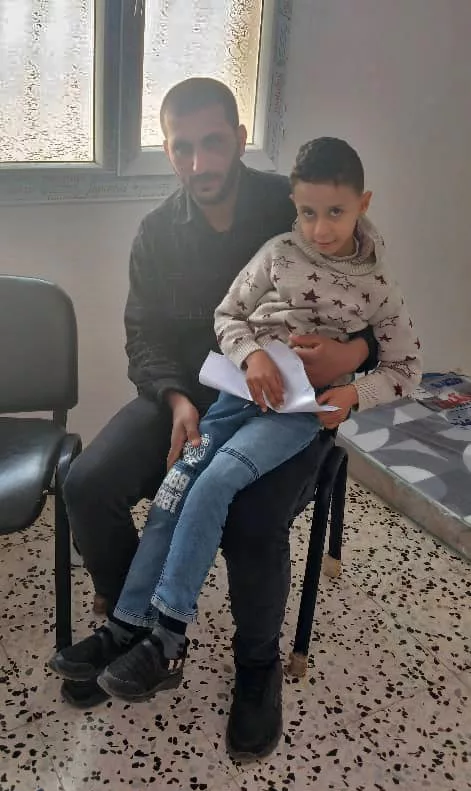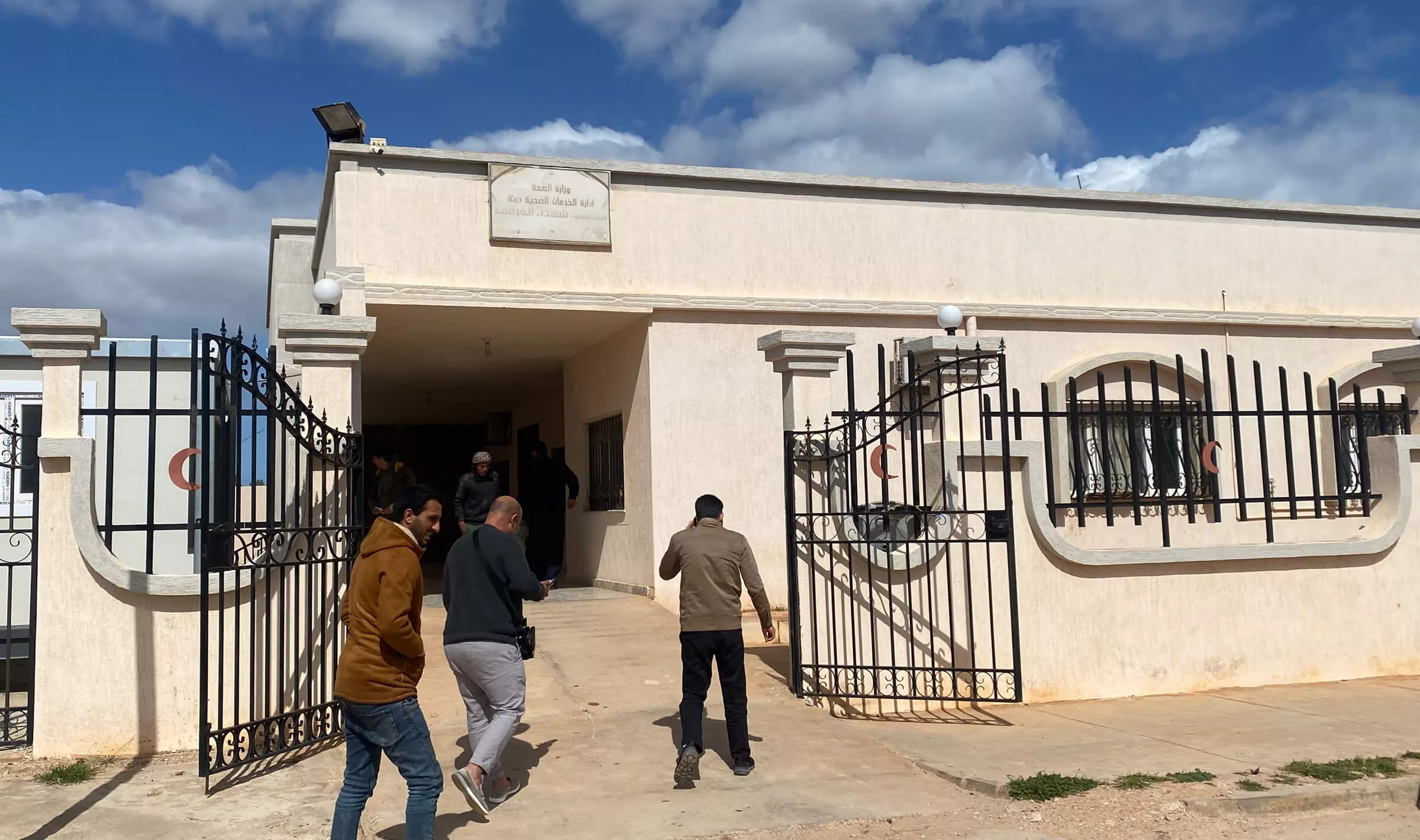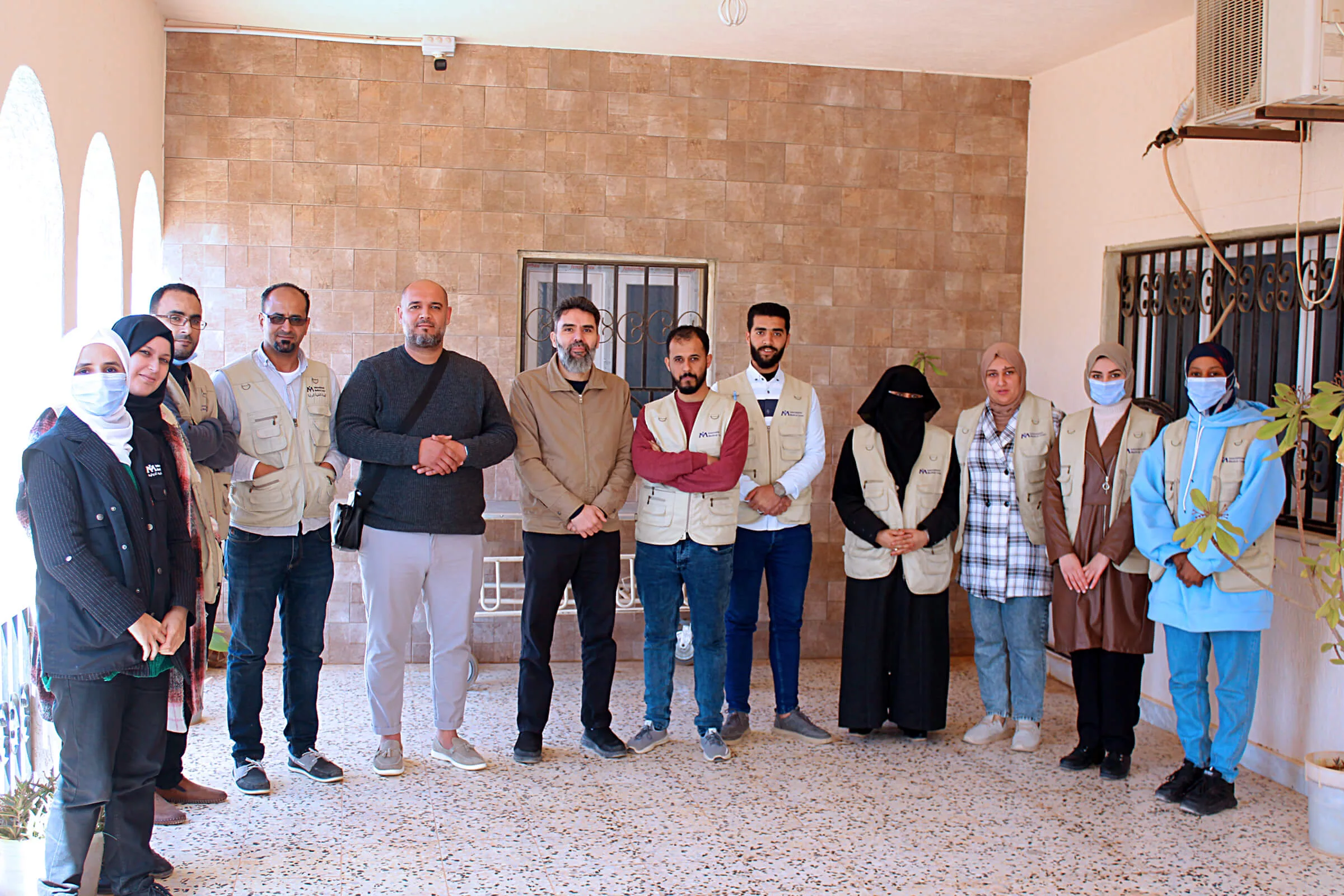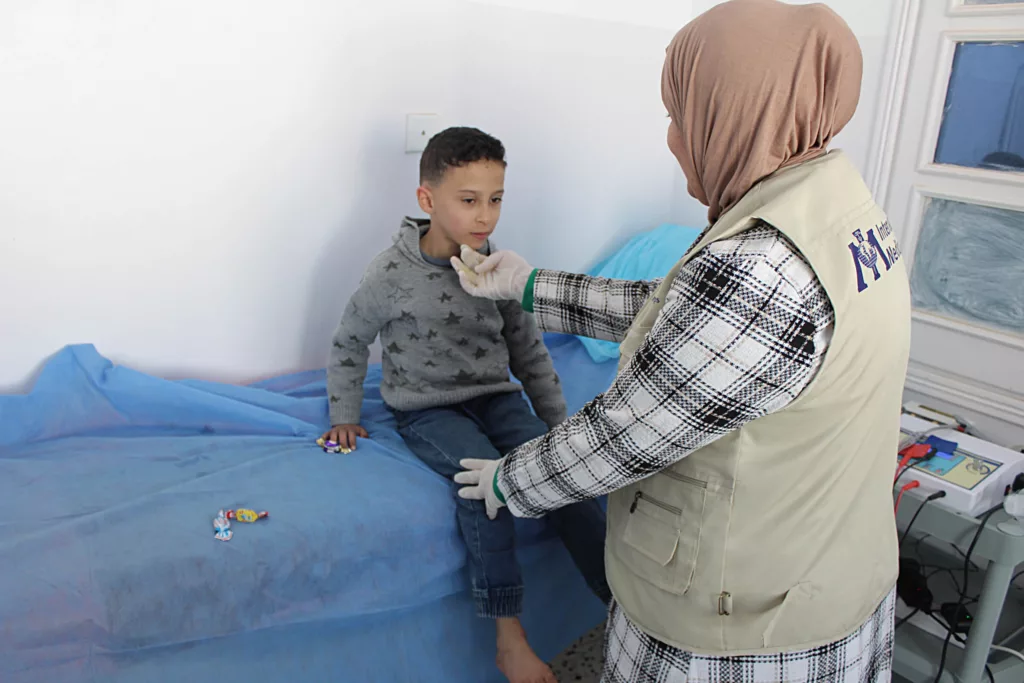Muhammad is a seven-year-old boy who lives in Derna, a coastal city in eastern Libya. Muhammad was born with cerebral palsy, a disorder that affects muscle tone and movement. When he was three years old, Muhammad had surgery to help ease his disabilities. Though the surgery went well, intensive post-surgery physiotherapy sessions were required as part of his treatment plan.
Unfortunately, health facilities in eastern Libya were suffering from staff and equipment shortages. As a result, Muhammad and his father were forced to travel to a private clinic far from their home for physiotherapy services.

“I was traveling more than 60 kilometers, four times a week, disrupting my work and Muhammad’s school attendance just so he could continue his sessions,” explains Muhammad’s father.
Due to the disruptive schedule and financial cost, they eventually stopped going to the private clinic—leading to two years without physiotherapy treatment for Muhammad.
Storms Daniel Devastates Libya
In September 2023, Storm Daniel made landfall in Libya, leading to the collapse of two dams upstream from Derna. The subsequent floods displaced nearly 45,000 people and affected more than 1.5 million people—about 22% of Libya’s population.
The disaster exacerbated the already limited capabilities of local health facilities, causing extensive infrastructure damage and shortages in medications, staff and equipment.

International Medical Corps has been operating in Libya since 2011. After the disaster, we immediately deployed a response team. As part of their initial needs assessment, they identified significant shortages in skilled personnel and essential medical resources in primary health centers (PHCs) in Derna, Tobruk and Tokra.
Providing Critical Healthcare Services in Derna
With support from the European Union, International Medical Corps deployed a number of emergency medical teams (EMTs), including one to the Shuhada Algurgof PHC in Alfatayeh, which is near Muhammad’s school. Muhammad’s father soon became aware of the health facility and brought Muhammad to see Dr. Mira Alfakhri, a physiotherapist with International Medical Corps.
“Most of the hospitals and health clinics are damaged, under rehabilitation or closed,” Dr. Mira explains. “Shuhada Algurgof clinic is the only place in Derna that provides physiotherapy services.”
Dr. Mira established a rapport with Muhammad, and her treatment plan—which takes at least six months—includes the types of treatment he needs, such as stretching, strengthening and endurance exercises.

Thanks to this physiotherapy treatment, Muhammad’s health has significantly improved. He can now walk safely and sit normally without pain. His father expressed gratitude for the support International Medical Corps provided—particularly for ensuring that essential medical services are available to those who need them.
“When I arrived in Derna after the floods, the damage I saw was devastating,” explains Talal Burnaz, International Medical Corps’ Country Director in Libya. “Buildings were destroyed, thousands were displaced. It was unimaginable. Our EMTs have been critical in providing care to those who need it most, including children like Muhammad. We’re all inspired by his progress with Dr. Mira. It’s why we’re here—to help.”
In response to the flooding, International Medical Corps has deployed 12 EMTs and 60 staff members, bringing lifesaving health services to more than 5,000 displaced people. The teams continue to provide emergency and primary healthcare services, such as reproductive health, child health, general consultations, health education sessions, capacity training and medication distribution. So far, our 12 EMTs have completed about 19,000 outpatient consultations with internally displaced people from flood-affected areas.
